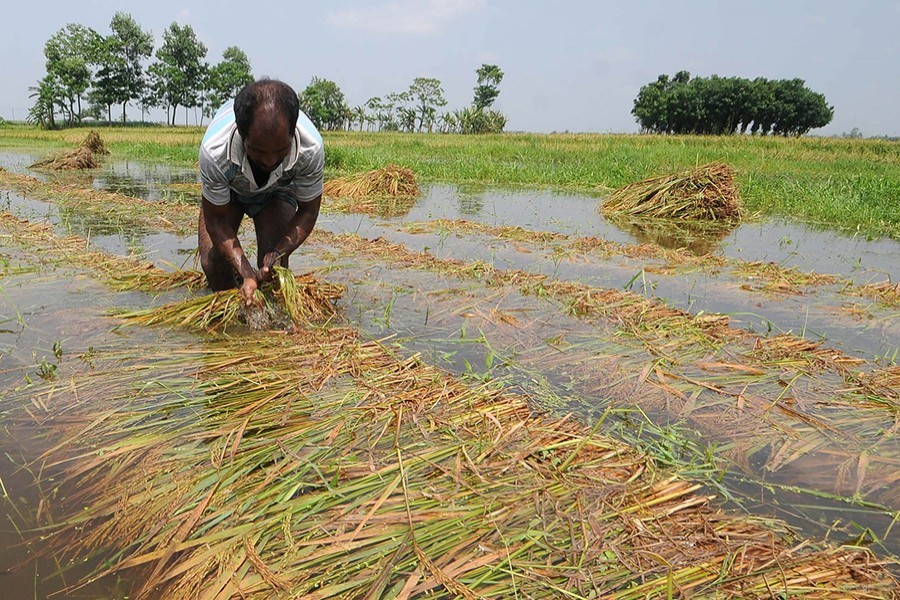Despite emitting the least amount of carbon, the small-scale farmers of Bangladesh are most vulnerable to the impacts of climate change, the UN’s International Fund for Agricultural Development (IFAD) has said.
The observation was made by IFAD while highlighting the impact of climate change on small-scale farmers at the 26th Conference of the Parties (COP26) to the UN Framework Convention on Climate Change on Wednesday, a press release said.
COP 26 is being held in Glasgow, UK. IFAD connected the poorest small-scale farmers of Bangladesh to the conference virtually, where the peasantry spoke about the projects and practices that are helping them adapt to the climate change consequences.
Quoting from the Bangladeshi Prime Minister Sheikh Hasina IFAD said: “Bangladesh contributes less than 0.47 per cent of global emissions, yet it is one of the most climate-vulnerable countries in the world,”
IFAD press release said small-scale farmers, who produce 70-80 per cent of Bangladesh’s food, are most vulnerable to the impacts of climate change – and, ironically, contribute to it the least.
“While progress is being made, the government of Bangladesh– and the people of Bangladesh - need more financial and technical support to mitigate and adapt to climate change,” said Donal Brown, Associate Vice-President at IFAD.
“Successful projects really need to be scaled-up, and that’s why the discussions at COP26 are so important. I am confident that if we all come together and do provide the finance necessary, we will be able to have a successful response to climate change in countries like Bangladesh,” he added.
In Sunamganj district in Bangladesh’s Haor region, participants spoke about how frequent and prolonged flooding would sweep away their homes and cattle, and how it cut off mobility.
Meanwhile, in Satkhira district, near the Sunderbans (the world’s largest deltaic mangrove forest), participants are taking to crab farming in response to the changing climate in their area.
Introducing more saline tolerant species has helped farmers in the area combat the impact of rising sea levels and warming temperatures, according to farmers.


